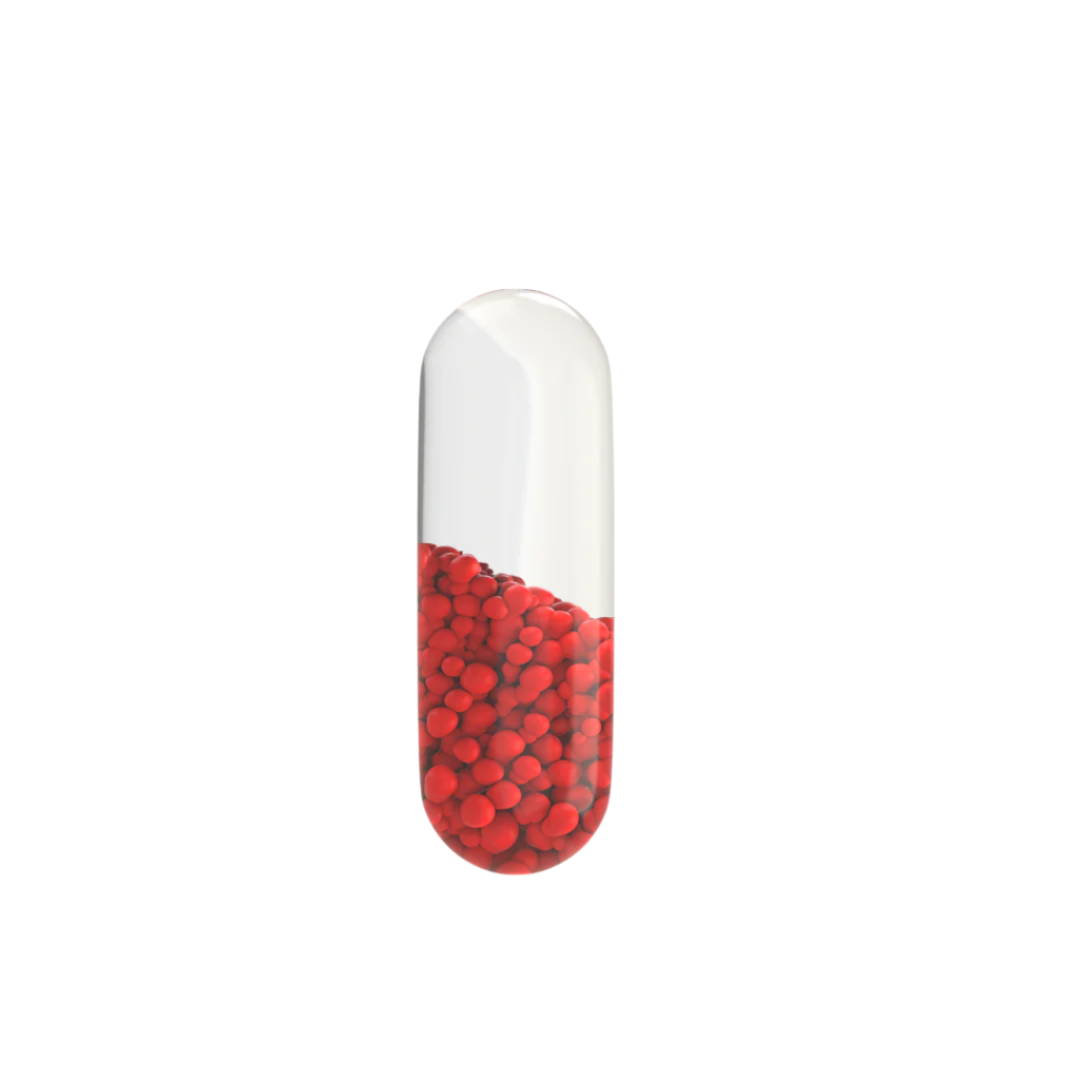5 Foods That Can Help You Sleep Better

Getting enough quality sleep is crucial for our overall health and well-being. Unfortunately, many people struggle with falling or staying asleep, leading to numerous health problems such as fatigue, irritability, poor concentration, and an increased risk of chronic diseases like obesity, diabetes, and heart disease. While many factors can affect your sleep quality, including stress, anxiety, and certain medications, your diet also plays a significant role. The food you eat before bed can considerably impact the quality of your sleep. Suitable foods can promote better sleep by helping you relax and providing the necessary nutrients for a restful night's sleep.
On the other hand, consuming the wrong foods before bed can make it difficult to fall asleep and stay asleep. One of the primary reasons certain foods can improve sleep is their impact on neurotransmitters in the brain. Neurotransmitters are chemical messengers that help to regulate various bodily functions, including sleep. For example, the neurotransmitter serotonin regulates mood, appetite, and sleep. In contrast, the neurotransmitter GABA helps to calm the nervous system and promote relaxation.
Foods high in tryptophan, such as dairy products, poultry, eggs, and nuts, can help boost serotonin levels in the brain. This is because tryptophan is converted into serotonin in the body. Eating foods high in tryptophan before bed can promote relaxation and improve sleep quality.
Similarly, foods high in magnesium can also help promote relaxation and improve sleep quality. Magnesium is involved in regulating GABA, the neurotransmitter that helps calm the nervous system. Foods high in magnesium include leafy green vegetables, whole grains, nuts, and seeds.
In addition to choosing foods high in tryptophan and magnesium, avoiding foods that disrupt sleep is also essential. For example, caffeine is a stimulant that can interfere with sleep by increasing alertness and reducing feelings of drowsiness. Therefore, caffeine-containing foods, such as coffee, tea, and chocolate, should be avoided before bed. Similarly, consuming foods that are high in sugar can also disrupt sleep. This is because sugar causes a rapid increase in blood sugar levels, which can then lead to a subsequent drop in blood sugar. This drop in blood sugar can cause feelings of hunger and lead to sleep disturbances.
Now that you know how your diet affects your sleep, here a 5 different food that could help you to sleep better.

Walnuts
Walnuts are nutrient-dense tree nuts known for their numerous health benefits. However, recent studies have also shown that walnuts positively impact sleep quality. This is because walnuts are rich in tryptophan. This amino acid is essential for producing serotonin and melatonin, two hormones that regulate sleep.
Serotonin is a neurotransmitter that helps to regulate mood, appetite, and sleep. On the other hand, melatonin is a hormone responsible for regulating sleep-wake cycles. It signals the body to prepare for sleep and helps to maintain a regular sleep pattern.
According to a study published in the Journal of Sleep Research, consuming walnuts may increase the duration and quality of sleep. The study involved 26 healthy adults who consumed either walnuts or a placebo for five days. The participants who consumed walnuts reported significantly better sleep quality than those who consumed the placebo.
In addition to its impact on sleep quality, walnuts have numerous other health benefits. They are rich in omega-3 fatty acids, which can help to reduce inflammation and improve heart health. They are also a good source of fibre, protein, and various vitamins and minerals.

Tart Cherries
Tart cherries, also known as sour cherries, are a type of cherry that has gained attention in recent years due to their potential benefits for sleep. These cherries are rich in melatonin, a crucial hormone in regulating the body's sleep-wake cycle. In addition, they also contain compounds like anthocyanins and phenolic acids, which have anti-inflammatory and antioxidant properties that may help improve sleep quality.
Several studies have investigated the effects of tart cherry juice on sleep. For example, in one study published in the Journal of Medicinal Food, participants who consumed tart cherry juice twice a day for two weeks reported improved sleep quality and duration and reduced insomnia symptoms. Another study published in the European Journal of Nutrition found that older adults who consumed tart cherry juice had significantly higher melatonin levels and slept longer than those who did not.
These findings suggest that incorporating tart cherries into one's diet or drinking tart cherry juice may be a natural and effective way to improve sleep quality. However, it is essential to note that more research is needed to fully understand the benefits and optimal dosage of tart cherries for sleep.
In addition to their potential sleep benefits, tart cherries have also been shown to have other health benefits, such as reducing inflammation and improving exercise recovery. Therefore, including tart cherries in one's diet can be a healthy and tasty way to support overall health and well-being.

Warm Milk
Warm milk has long been regarded as a natural sleep aid, with many people swearing by a warm cup before bed to help them drift off into a restful slumber. But what about this simple beverage makes it so effective for promoting sleep?
One theory is that warm milk contains tryptophan. This amino acid is a precursor to serotonin, a neurotransmitter that helps regulate sleep. Tryptophan is found in many protein-rich foods, but milk is an excellent source. In addition, the warmth of the milk may have a soothing effect on the body, helping to relax the muscles and calm the mind.
Research on the effects of warm milk on sleep is limited. Still, some studies have suggested that it may have a positive impact. For example, a 2010 study published in the Journal of Research in Medical Sciences found that warm milk combined with honey was more effective than a placebo in improving sleep quality in postmenopausal women.
It's important to note, however, that warm milk is not a magic cure-all for insomnia or other sleep disorders. If you're struggling with sleep issues, it's best to talk to a healthcare professional to identify and address the underlying causes. That being said, a warm cup of milk before bed may be worth a try for those looking for a natural and soothing way to wind down at night. Avoid adding sugar or other sweeteners, which can have the opposite effect and interfere with sleep.

Kiwifruit
Kiwi fruit, also known as Chinese gooseberry, is a small, brown, fuzzy fruit native to China. It is a rich source of several nutrients, including vitamins C, K, potassium, and fiber. However, its high serotonin concentration sets the kiwi fruit apart. This neurotransmitter is essential for regulating sleep.
Studies have shown that consuming kiwi fruit before bed can improve sleep quality and duration. For example, in a randomised controlled trial, researchers found that participants who consumed two kiwi fruits one hour before bedtime fell asleep faster and slept more soundly than those who did not. The study also showed that the participants who ate kiwi fruit had significantly higher serotonin levels in their blood, which is believed to be the reason for the improved sleep.
The sleep-promoting effects of kiwi fruit are likely due to its high concentration of serotonin, which is converted to melatonin in the brain. Melatonin is a hormone that regulates sleep-wake cycles, and its production is influenced by exposure to light. Therefore, consuming kiwi fruit before bed can help increase melatonin levels and signal the brain that it is time to sleep.
In addition to its sleep-promoting effects, kiwi fruit has also been linked to several other health benefits, including improved digestion, reduced inflammation, and lowered risk of heart disease.

Chamomile Tea
Chamomile tea has been a popular natural remedy for sleep-related issues for centuries. The tea is made from the dried flowers of the chamomile plant, which is a member of the daisy family. Chamomile tea is known for its calming properties, and it has been shown to improve sleep quality and reduce anxiety.
Chamomile tea contains compounds called flavonoids, which have been shown to have a sedative effect. These compounds bind to receptors in the brain, promoting relaxation and reducing stress. Additionally, chamomile tea contains an amino acid called tryptophan, a precursor to the neurotransmitter serotonin. Serotonin plays a crucial role in regulating mood and sleep-wake cycles, so increasing levels of this neurotransmitter can help improve sleep.
Research has shown that drinking chamomile tea before bed can improve sleep quality and help you fall asleep faster. For example, a 2017 study published in the Journal of Advanced Nursing found that elderly patients who drank chamomile tea before bed had improved sleep quality compared to those who did not.
Chamomile tea is also a safe and natural alternative to prescription sleep aids. Unlike many sleep medications, chamomile tea does not cause side effects such as dizziness or grogginess the following day. It is also non-habit forming, so it can be used regularly without the risk of dependency.
Conclusion
In conclusion, getting quality sleep is essential for maintaining overall health and well-being. Your diet plays a significant role in the quality of sleep you get. Consuming foods high in tryptophan and magnesium, such as dairy products, poultry, eggs, nuts, leafy green vegetables, whole grains, nuts, and seeds, can promote relaxation and improve sleep quality. On the other hand, avoiding foods that disrupt sleep, such as caffeine-containing foods, including coffee, tea, and chocolate, and those high in sugar is essential.
Walnuts are nutrient-dense tree nuts rich in tryptophan, which helps produce serotonin and melatonin, two hormones that regulate sleep. Therefore, consuming walnuts may increase the duration and quality of sleep. Tart cherries are rich in melatonin, a crucial hormone regulating the body's sleep-wake cycle. Therefore, incorporating tart cherries into one's diet or drinking tart cherry juice may be a natural and effective way to improve sleep quality. Warm milk is an excellent source of tryptophan and may have a soothing effect on the body, helping to relax the muscles and calm the mind.
It is essential to note that the benefits of these foods for sleep are still being researched, and more studies are needed to determine the optimal dosage and the exact mechanisms of how they work. However, besides their potential sleep benefits, these foods have numerous other health benefits, such as reducing inflammation and improving heart health. Therefore, incorporating them into one's diet can be a healthy and tasty way to support overall health and well-being.
Furthermore, it is important to note that while these foods may be beneficial, they should not be used as a substitute for proper sleep hygiene practices such as maintaining a consistent sleep schedule, avoiding caffeine and alcohol before bedtime, and creating a relaxing sleep environment. If you are experiencing chronic sleep problems, it is important to consult a healthcare professional for proper diagnosis and treatment. Furthermore, if you consume B-SYNC ON, we recommend not consuming any type of food 2 hours prior to taking it, so you can have the best results.
References
- https://pubmed.ncbi.nlm.nih.gov/21923981/
- https://pubmed.ncbi.nlm.nih.gov/20438325/
- https://pubmed.ncbi.nlm.nih.gov/22038497/
- https://pubmed.ncbi.nlm.nih.gov/30390870/
- https://pubmed.ncbi.nlm.nih.gov/30390893/
- https://ods.od.nih.gov/factsheets/Magnesium-HealthProfessional/
- https://doi.org/10.6133/apjcn.2012.21.4.01







